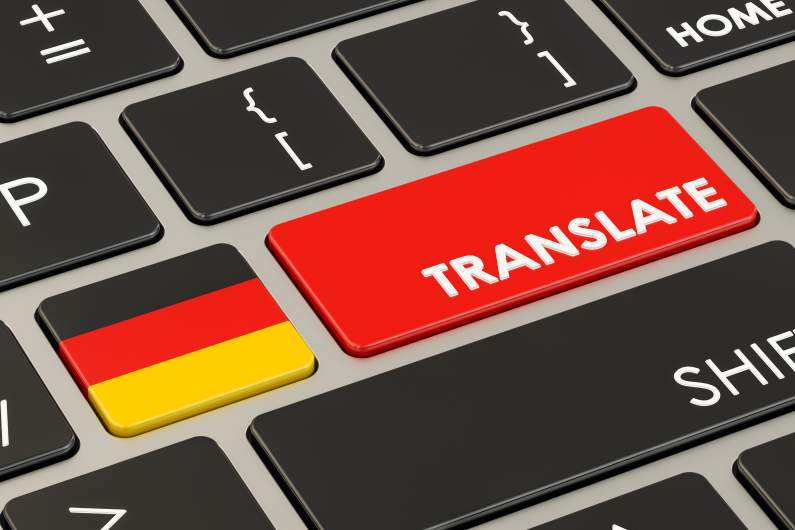There is a big difference between companies in Germany and successful companies in Germany.
This difference is due to localization strategies in the German language to connect with local German audiences.
Confused? Let us understand the localization strategy in detail, along with its importance.
What Is a Localization Strategy, and Why Is It Important to Implement a Localization Strategy?
A company’s localization strategy is an overall content marketing plan for translating marketing content to connect with new or local audiences.
It helps new companies and individuals to enter the market and sell themselves in front of local audiences.
Localization strategies and content connect with users because it incorporates relevant cultural practices to create a sense of familiarity, rather than simply replacing marketing content with well-written text.
It helps companies build a relationship with prospective clients.
A well-designed localization strategy can help you enter a new market and gain customer’s confidence.
Why Do You Need to Design a Localization Strategy in the German Language?
Companies must design a localization strategy in the German language for the German audience.
Customers in Germany have their own needs and purchasing habits, so it becomes essential to connect with the audience and cater to their unique needs.
People in Germany share a strong relationship with the German language and relate to content published and translated in German.
Due to these reasons, it becomes crucial to implement a localization strategy in Germany and translate content into German.
But how to effectively translate content in English and other languages to the German language to successfully enter the market and connect with local audiences.
How to Effectively Translate in the German Language?
Effective German language translation is essential for disseminating marketing ideas, information, and knowledge to German audiences.
It is vital for successful and effective communication with prospective clients in Germany.
Following are the steps to effectively translate content in the German language:
- Hire a local translator to translate your content into the German language. This will help in ensuring that the translated content is accurate to provide a localized experience for audiences.
- If you don’t want to hire a German language translator, make sure you read the whole document before translating it into the German language, as reading the gist of the content might result in the wrong interpretation of the information.
- Translation of a document is not complete until it has been reviewed several times. This means that to translate content in the German language effectively, you must review your mistakes or even hire another experienced translator to check the translation to correct any final errors.
The above German language translation techniques can help anyone who specializes in German translation or wants to translate information to implement localization strategies in Germany.
Here are a few tips and strategies for localization and effectively translate content into the German language.
Tips and Strategies for Localization Strategy in the German Language
These tips and strategies will help in implementing localization strategy as well as effectively translate information into the German language:
Build Your Localization Strategy Based on Memorable Experiences
If you have a clearly defined communication plan and localization strategy, potential customers will prefer your business over your competitors.
Thorough research is required to provide local customers with memorable personalized experiences.
Building your localization strategy on these unique experiences is essential to gain the local audience’s attention and confidence.
Remember to Keep the Style of the Translated Document the Same as the Original Version
Every document, piece of information, and marketing content has its own style, which may be humorous, serious, and informative.
Make sure that the translated information matches the writing style of the original document so that the translation matches German culture, and people interpret the translated information in the right way.
Avoid Word for Word Translation
It is crucial to have a general understanding of the translated text before proceeding with the complete translation. If you start by translating word for word, ultimately, you will not get the right message.
You can, and you may end up with tons of words and sentences that sound wrong and not fluent.
Even in languages of common origin, such as German and English, the words used in the two languages arranged in a specific order in the text can lead to a different meaning.
So, avoid word-to-word translation, and read the whole text before translating to understand the writing style and purpose of the content.
Become Part of the German Community
To enter the German market, make sure you connect with the local community and are always available for them.
Stay on top of current events and support the community as and when needed.
For example, consider donating your time and products or services to provide the community with meaningful assistance during a natural disaster or a difficult time.
Look for those important moments when you can connect with your customers and share your time with the local community. T
his is the best way to implement an effective localization strategy and connect with the local community.
Proofread Translated Document Again and Again
Translation of a document is not complete until it has been reviewed several times.
To effectively translate content into German, you need to analyze your mistakes or even hire a translator to check the translation and correct the final errors.
Conclusion
These translation techniques, strategies, and tips will help you incorporate localization strategies and lead to the international expansion of your business.
Localization is the key to successful business and communication, and it helps companies connect to new customers and adapt to the culture of the new target market.
The translation is an integral part of an effective localization strategy, especially in Germany, where the local community relates to content published and translated in German.





